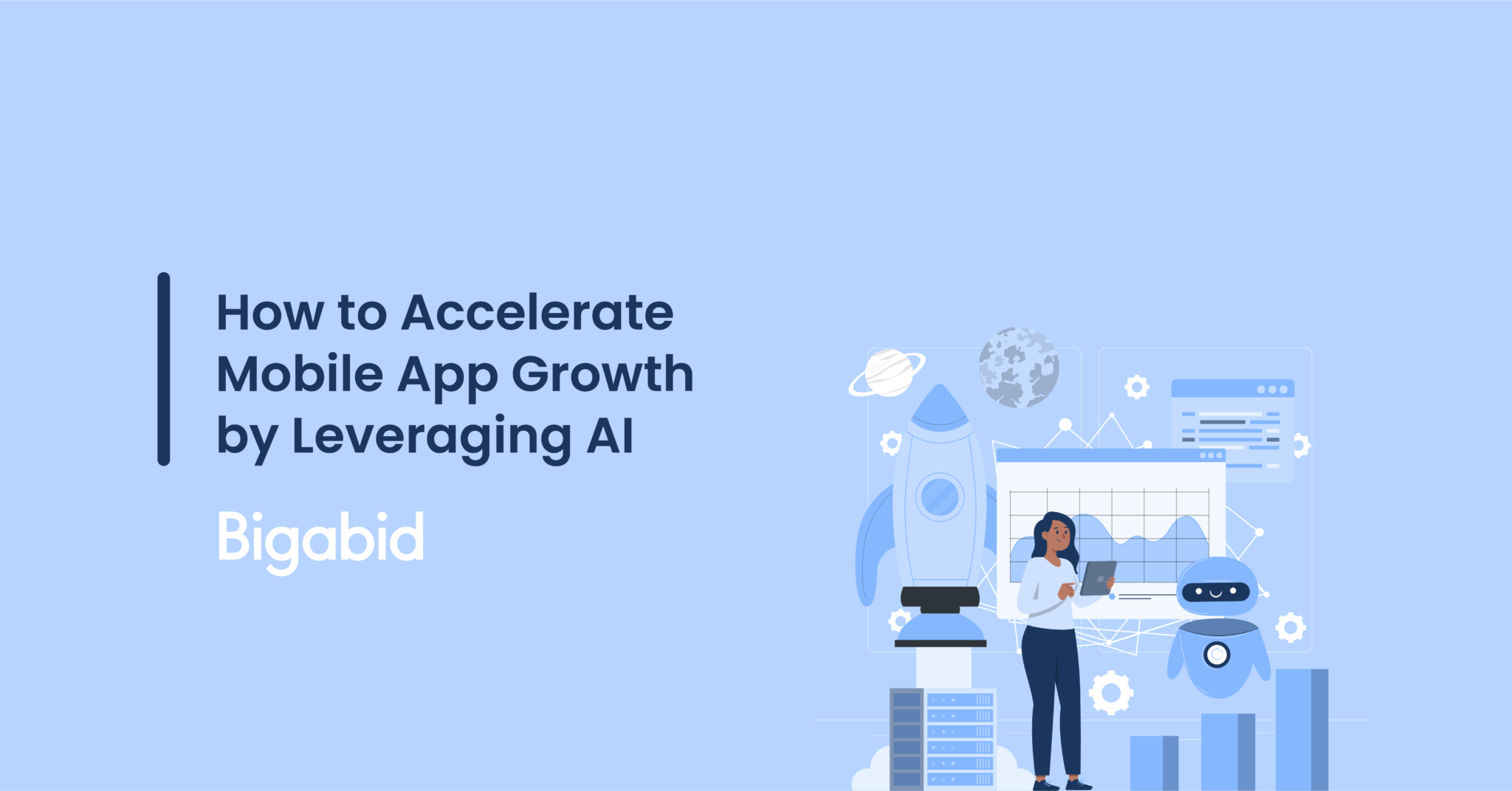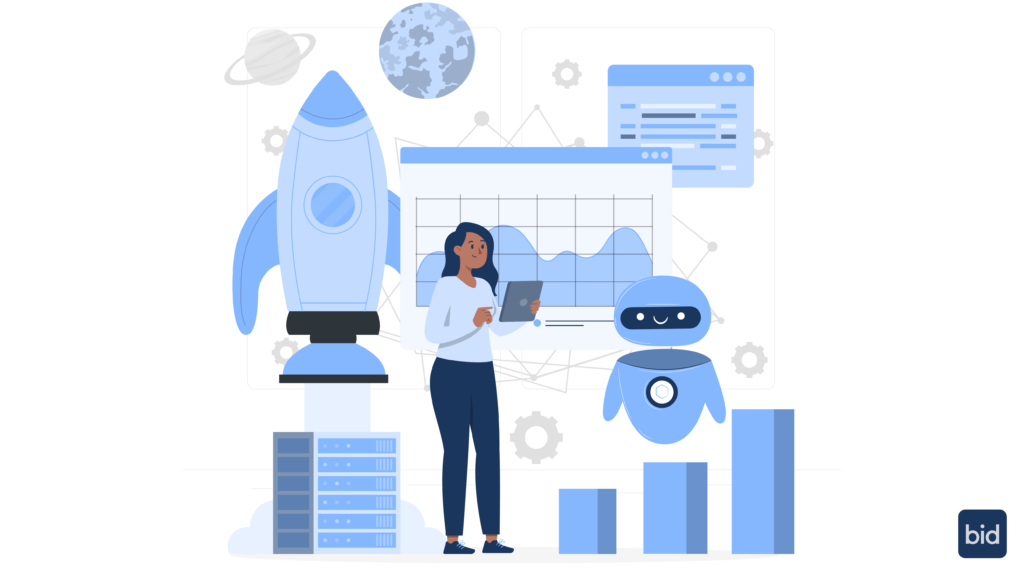
How AI is Revolutionizing Mobile App Growth
AI significantly transforms mobile app growth strategies through machine learning (ML), deep neural networks (DNNs), predictive analytics, natural language processing (NLP), and automation. These advanced methodologies facilitate smarter decision-making, precise targeting, and personalized user experiences.
- Advanced User Acquisition
- Predictive analytics and machine learning algorithms analyze comprehensive historical and real-time user data, including demographic profiles, past interactions, and app behaviors.
- AI-powered Demand-Side Platforms (DSPs) leverage real-time bidding (RTB) mechanisms to dynamically adapt campaign parameters, optimizing ad spend and maximizing returns.
- Technical example: A mobile gaming app uses ML-driven clustering and classification algorithms to segment users based on their behavior in similar apps, targeting high-value user segments more effectively and reducing customer acquisition costs (CAC).
Learn more about AI and the Future of User Acquisition.
- Real-Time Campaign Optimization
- Real-time analytics and adaptive reinforcement learning (RL) algorithms empower campaigns to respond instantly to changing market dynamics and user interactions.
- AI systems autonomously adjust ad bids, creatives, audience targeting, and budget allocation, ensuring continuous optimization and improved return on investment (ROI).
- Technical example: A financial services app utilizes RL-driven DSPs to adjust campaign strategies based on real-time user response, automatically reallocating budgets and creatives to higher-performing channels.
- Enhanced Retargeting Strategies
- AI-powered retargeting leverages churn prediction models and propensity scoring algorithms built on neural networks to accurately identify users likely to churn or disengage.
- Personalized, predictive retargeting campaigns deliver precisely timed ads, significantly enhancing user reactivation and retention.
- Technical example: An e-commerce app deploys neural network models trained on extensive browsing and transaction data to predict churn signals, activating automated, personalized retargeting campaigns tailored to user preferences and historical behaviors.
- Contextual Personalization through Deep Learning
- Advanced NLP models, recurrent neural networks (RNNs), and transformer architectures (e.g., GPT-4) provide dynamic, contextually relevant personalization, enhancing user engagement, retention, and satisfaction.
- AI-driven personalization strategies include customized content recommendations, tailored app notifications, and adaptive user onboarding processes.
- Technical example: A fitness app leverages transformer-based deep learning models to analyze users’ historical activity logs and real-time feedback, generating highly customized workout routines and engagement prompts that evolve alongside user behavior.
Discover more about deep learning in advertising.
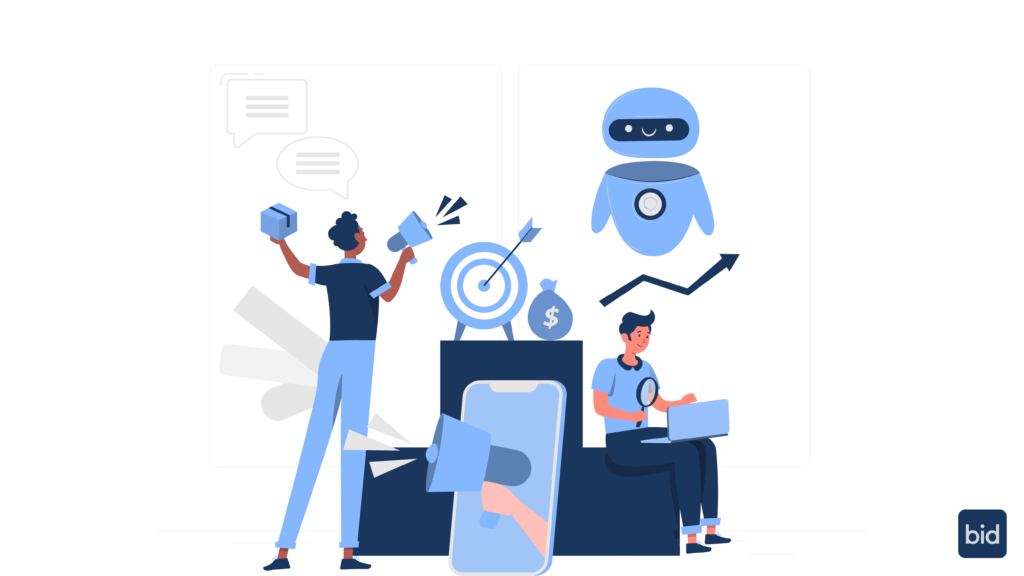
Implementing AI-Driven Mobile App Growth: Technical Steps
- Select and Integrate Sophisticated AI Tools
- Evaluate AI platforms based on robust ML capabilities, ease of integration, scalability, cloud compatibility, and advanced analytical features.
- Ensure seamless integration into existing technology stacks, including data lakes, cloud services, analytics platforms, and CRM systems, facilitating streamlined data processing and reporting.
- Harness Big Data for Advanced Audience Segmentation
- Deploy AI-driven analytics systems capable of processing and interpreting vast datasets from diverse sources (user interactions, third-party data, in-app behaviors).
- Utilize clustering, classification, and regression algorithms to uncover nuanced user segments, emerging behaviors, and predictive engagement patterns, refining targeting strategies.
- Develop AI-Enhanced Retargeting Frameworks
- Create sophisticated retargeting workflows using AI-driven churn prediction models, adaptive learning algorithms, and real-time analytics.
- Integrate NLP-driven ad personalization to dynamically craft messaging based on individual user profiles, significantly enhancing reactivation effectiveness.
- Implement Continuous AI-Driven Optimization
- Employ reinforcement learning-based optimization systems for automated decision-making on ad placements, bidding strategies, and creative testing.
- Adopt machine learning-driven A/B testing frameworks that continuously analyze performance metrics, ensuring constant refinement and improvement of campaigns.
- Rigorous Monitoring and Analysis of AI-Enhanced KPIs
- Implement AI-powered analytics dashboards offering granular insights into critical KPIs:
- Customer Acquisition Cost (CAC)
- Lifetime Value (LTV)
- User Retention Rates
- Return on Ad Spend (ROAS)
- Conversion Rates
- Apply AI-driven anomaly detection systems to swiftly identify and rectify unexpected performance deviations, maintaining optimal campaign effectiveness.
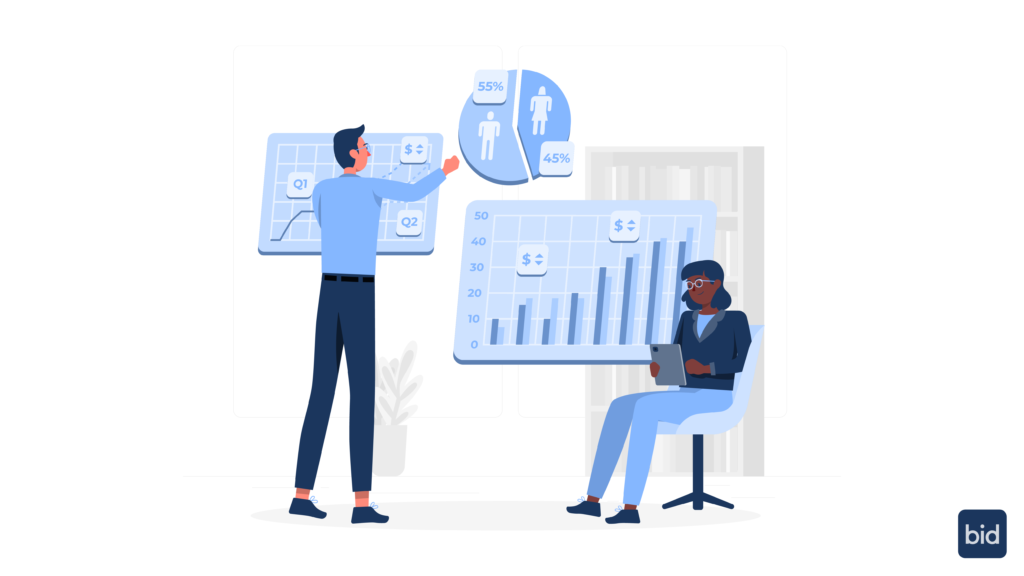
Key Performance Metrics Enhanced by AI:
- Customer Acquisition Cost (CAC): Reduced through predictive targeting and optimized resource allocation.
- User Retention Rates: Improved by AI-driven personalized user engagement and proactive churn prevention.
- Conversion Rates: Increased via precise audience targeting, timely retargeting, and contextually personalized user journeys.
- Lifetime Value (LTV): Maximized by AI-powered segmentation strategies targeting high-value users predicted to yield sustained engagement and monetization.
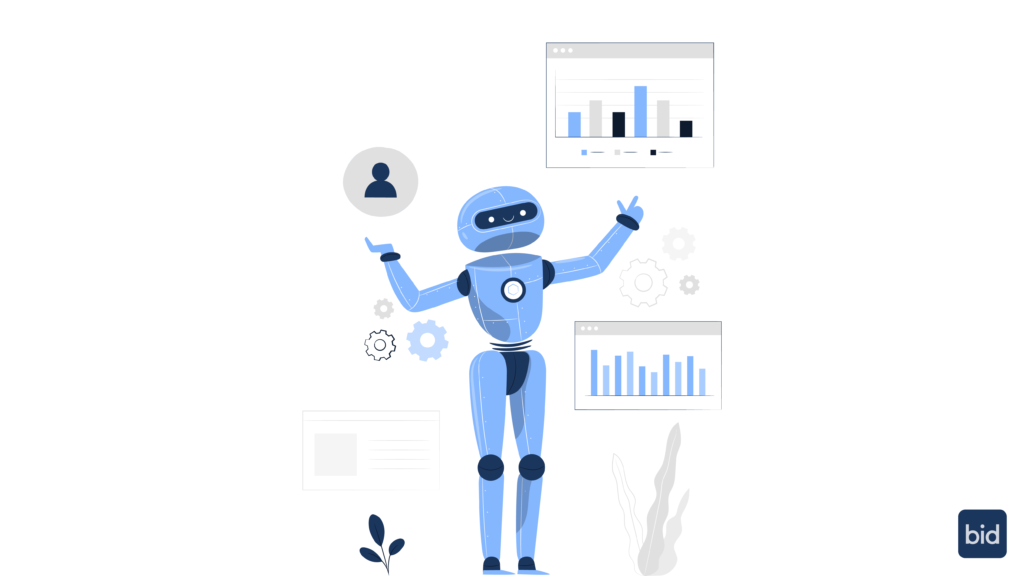
Future Outlook and Technological Advancements
Looking ahead, AI advancements such as generative AI, deep reinforcement learning, federated learning, and augmented analytics promise to further revolutionize mobile app growth strategies. Innovations like federated learning allow privacy-preserving analytics, crucial as privacy regulations evolve. Generative AI can enhance creative optimization and content generation, allowing marketers to experiment rapidly and cost-effectively.
Artificial Intelligence is reshaping the landscape of mobile app marketing by enabling unprecedented precision, efficiency, and personalization. Leveraging advanced AI strategies—predictive analytics, adaptive retargeting, real-time optimization, and sophisticated personalization—positions apps to achieve scalable, profitable, and sustained growth.
By proactively integrating these advanced AI methodologies, app marketers can significantly elevate user acquisition, retention, engagement, and overall business outcomes, staying ahead in a highly competitive market.
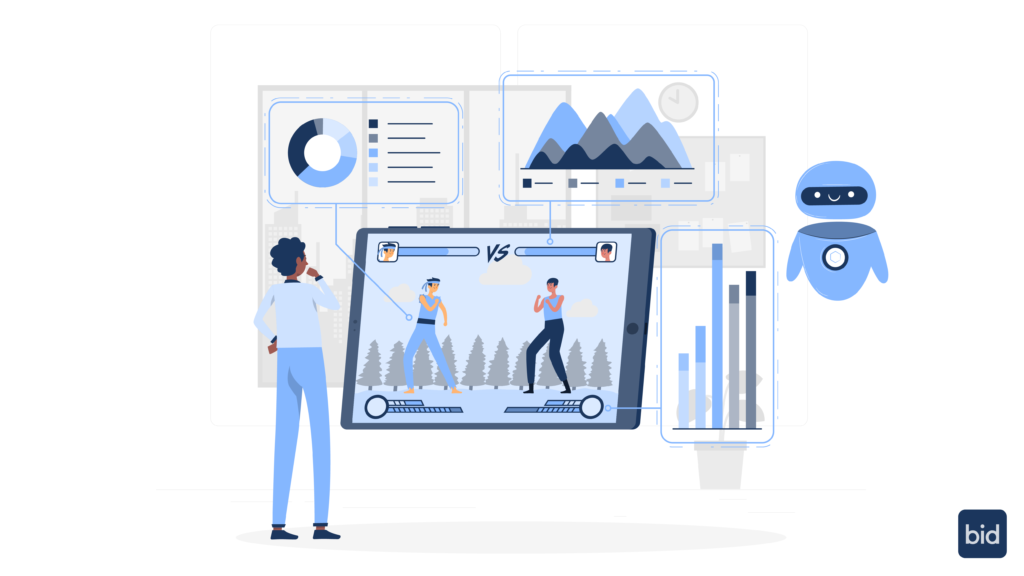
Ready to Accelerate Your App’s Growth?
Partner with Bigabid, a cutting-edge Demand-Side Platform (DSP) at the forefront of AI-driven mobile marketing solutions. Bigabid specializes in utilizing advanced technologies such as machine learning predictive models, deep learning algorithms, real-time bidding, dynamic creative optimization, and precise audience targeting to ensure maximum efficiency and effectiveness of your mobile campaigns. By harnessing Bigabid’s innovative platform and industry expertise, your mobile app can achieve significant user growth, increased ROI, and enhanced user retention. Discover how Bigabid can revolutionize your mobile marketing strategy today.
As Amit Attias, CTO of Bigabid, emphasizes, “At Bigabid, we envision the next frontier of mobile growth as a collaborative ecosystem between our expert data scientists and pioneering AI technologies. We’re actively exploring advanced methodologies such as generative AI, causal inference, multi-agent reinforcement learning, and Federated Learning—where intelligence is decentralized, and user privacy remains paramount. This powerful synergy between human expertise and sophisticated AI not only refines our understanding of user behaviors but also responsibly shapes future mobile interactions. Our commitment is clear: to lead the charge in defining the next era of intelligent, ethical, and privacy-preserving mobile marketing.”
